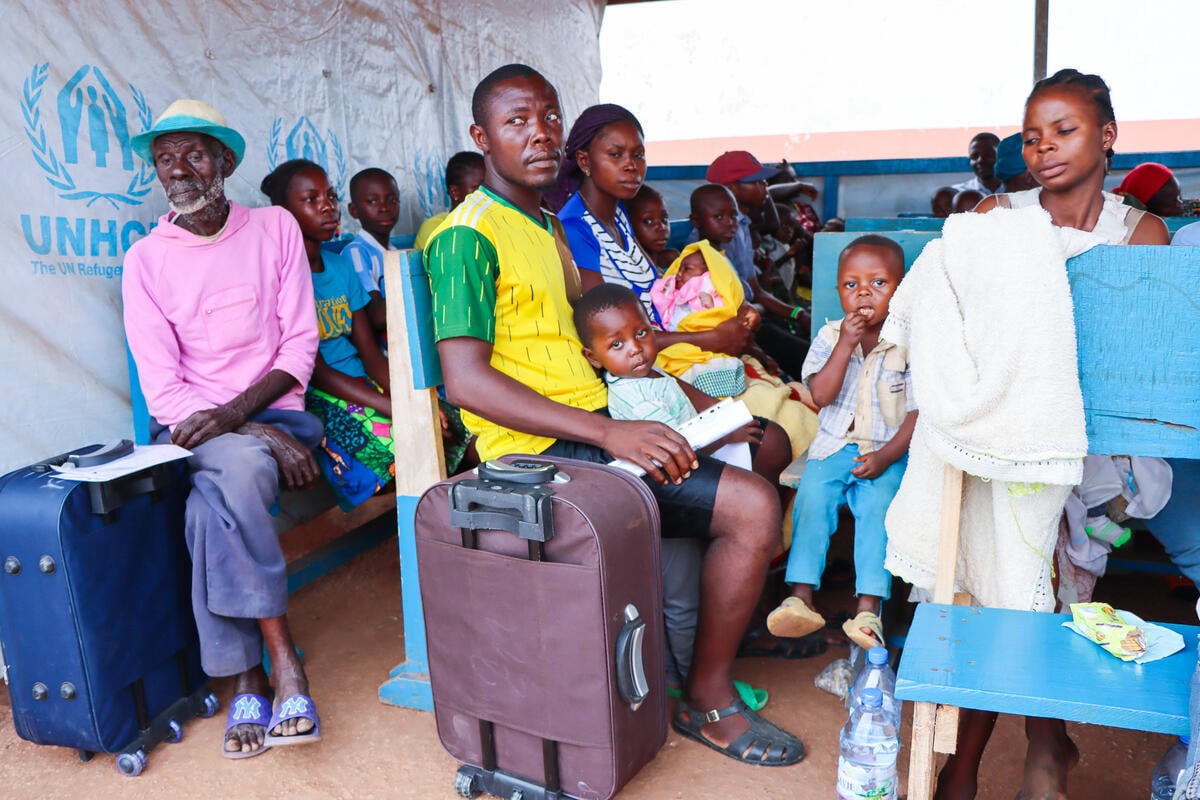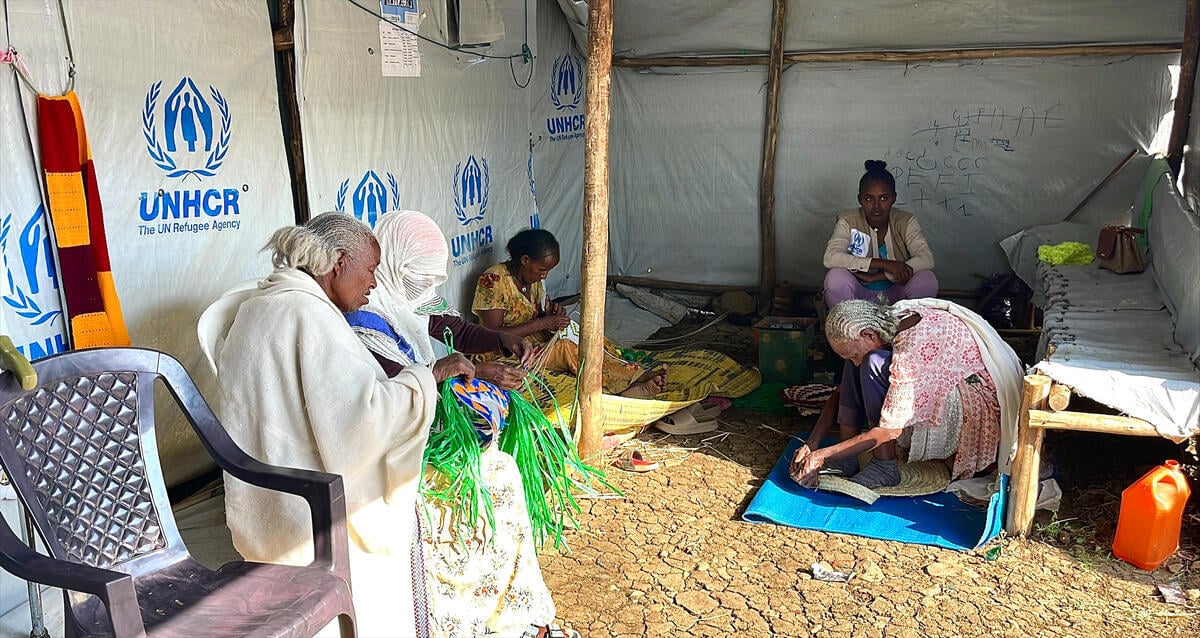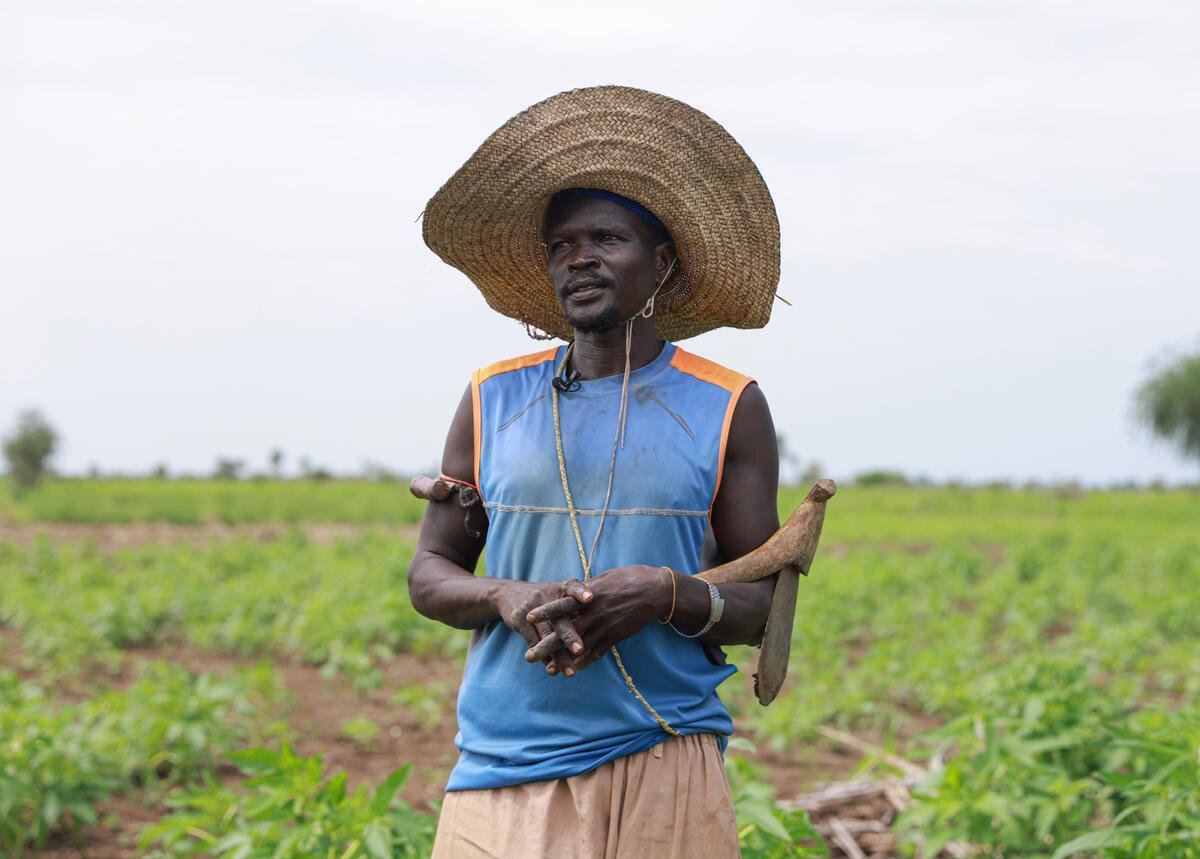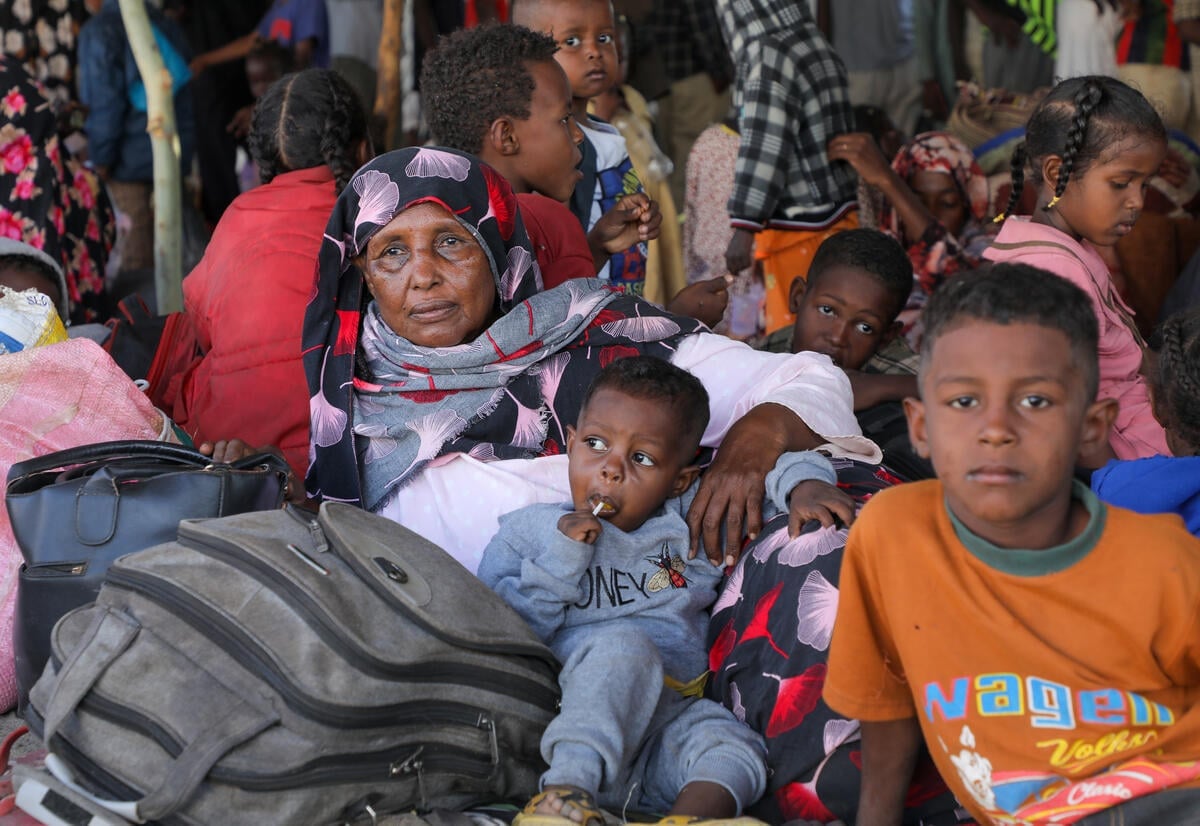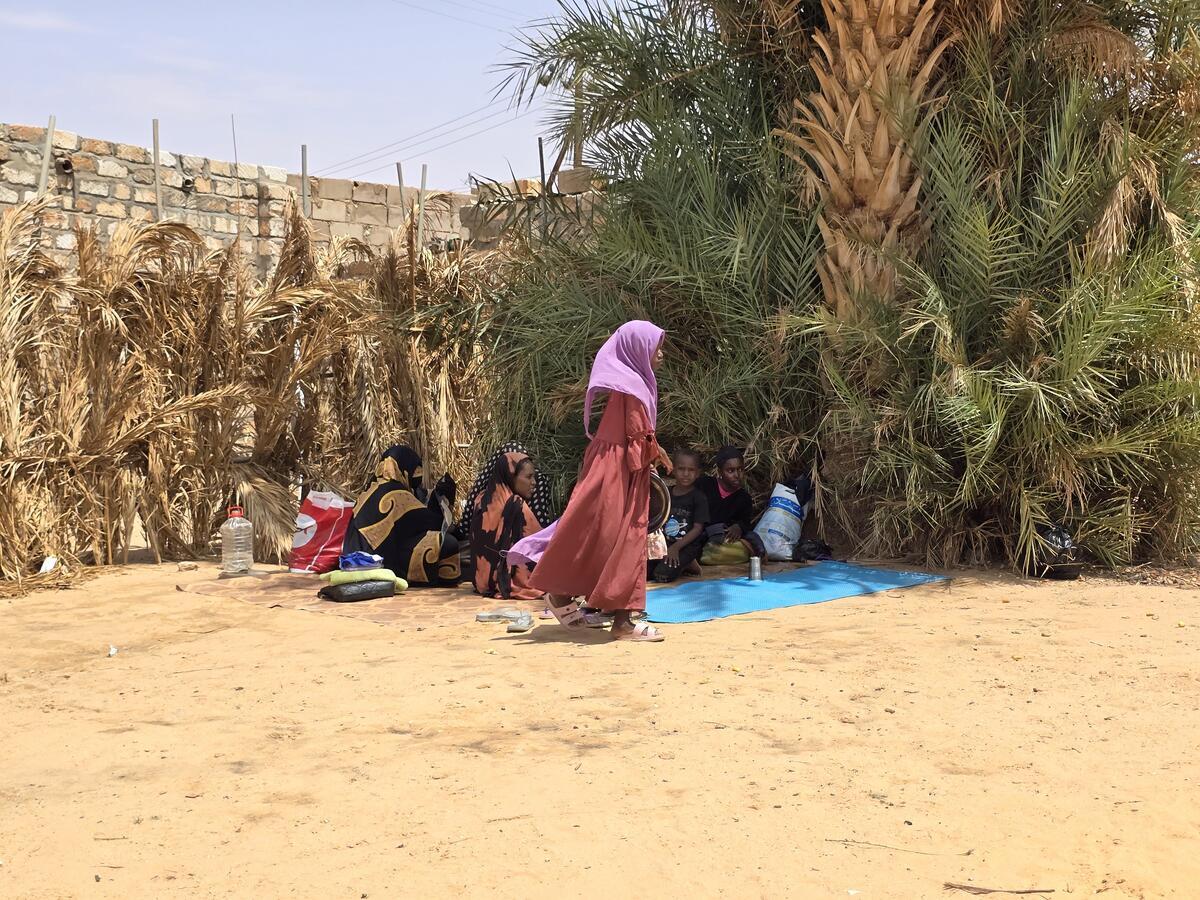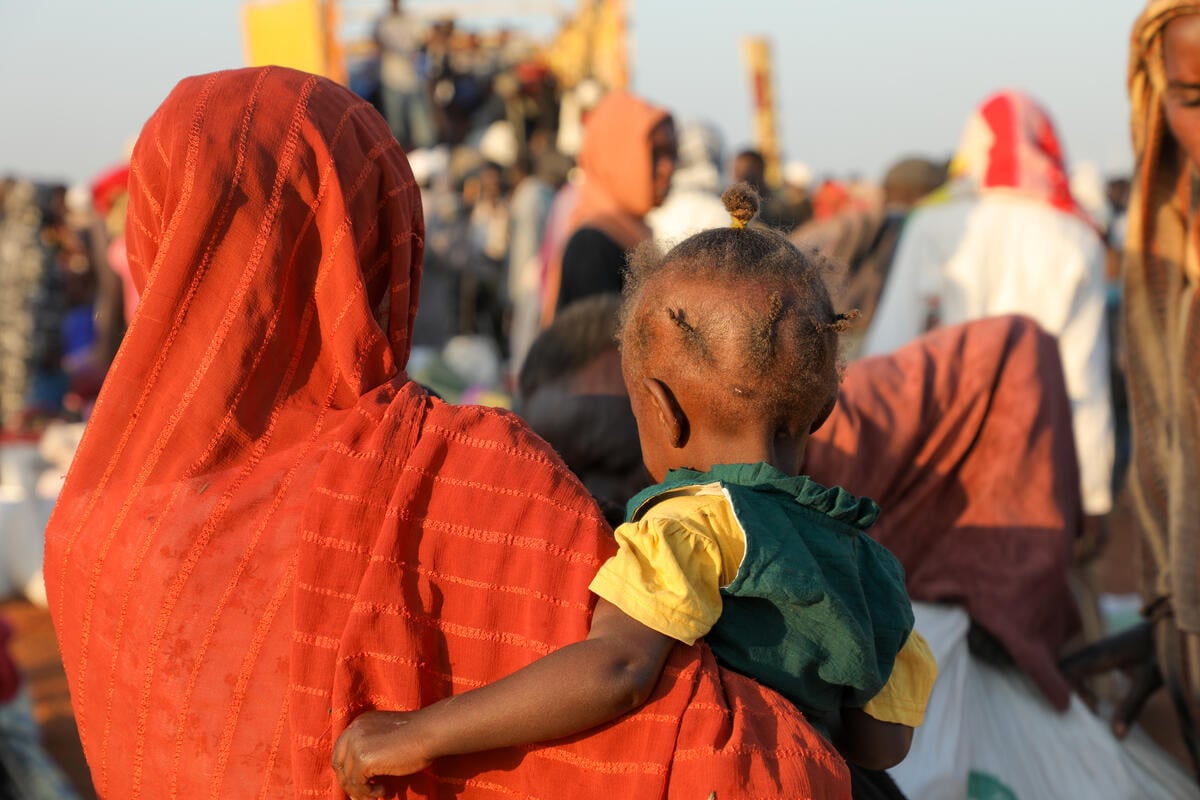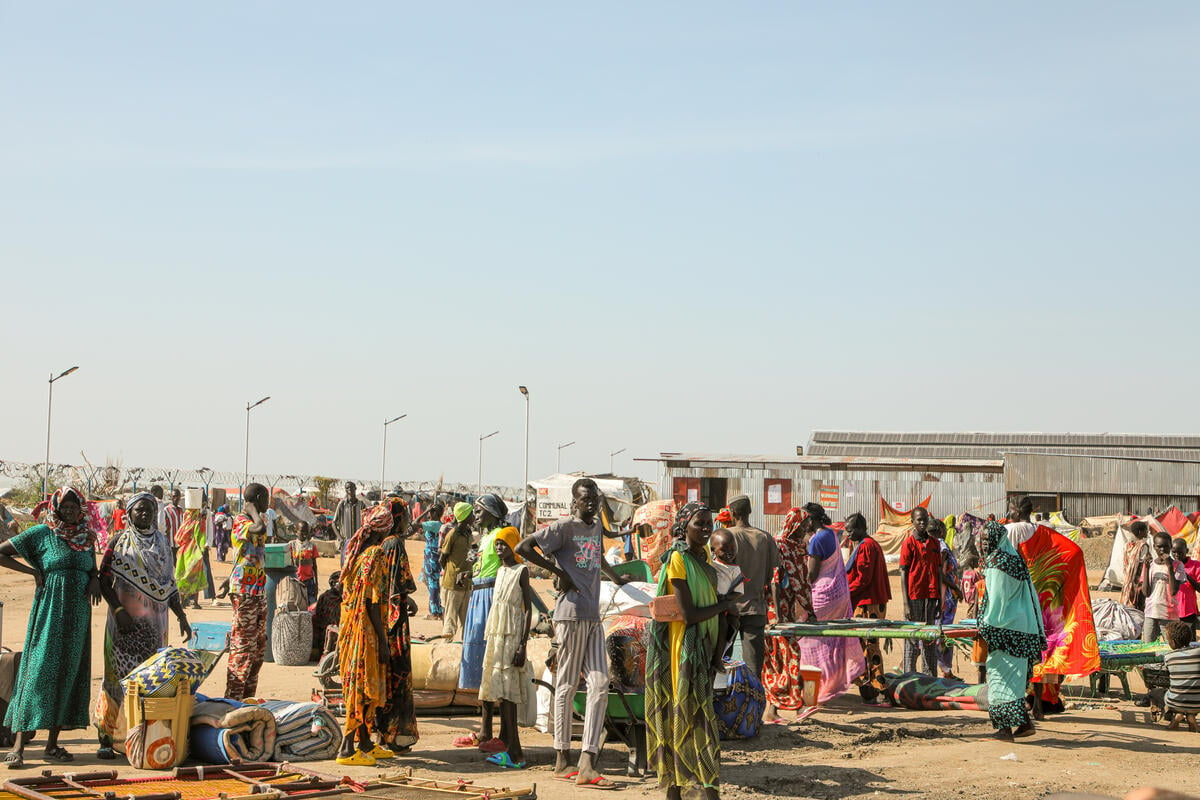UN calls for US$3 billion to rush life-saving aid and protection to people impacted by the Sudan crisis
UN calls for US$3 billion to rush life-saving aid and protection to people impacted by the Sudan crisis
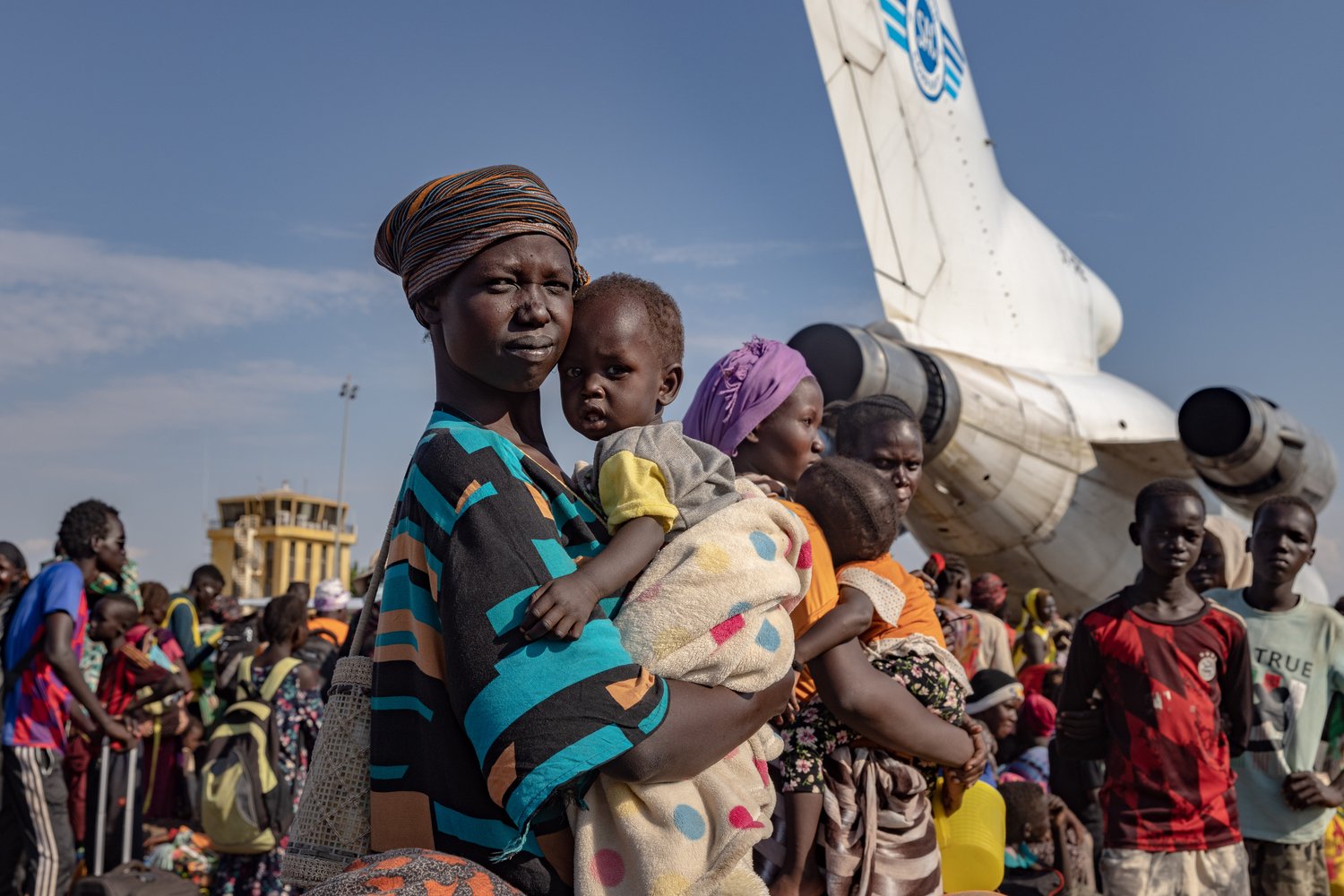
Achol Deng and her daughter wait with hundreds of South Sudanese returning refugees at Palouch Airport in South Sudan's Upper Nile State, after fleeing the conflict in Sudan.
GENEVA – With the conflict in Sudan entering its second month, the United Nations and its partners today called for US$3 billion to help millions of people in the country and hundreds of thousands fleeing to neighbouring countries.
As the death toll mounts, humanitarian needs soar, and displacement grows, the UN is launching two response plans to provide food, health care, shelter, protection and other critical assistance.
The Humanitarian Response Plan for Sudan has been revised due to the soaring needs spurred by the current crisis. It now requires $2.56 billion, an increase of $800 million from just a few months ago, to help 18 million people until the end of this year, making it the largest appeal ever issued for Sudan.
The Sudan Regional Refugee Response Plan seeks $470.4 million to support refugees, returnees and host communities in the Central African Republic, Chad, Egypt, Ethiopia and South Sudan. The funds are intended to help over 1 million people, including refugees, returnees and third country nationals.
"This conflict is a cruel blow for the people of Sudan, already staggering under the weight of a desperate humanitarian situation. The desire, willingness and impatience of humanitarian agencies to deliver remains as strong as ever," said Emergency Relief Coordinator Martin Griffiths.
"The signing of the Declaration of Commitment was a welcome first step towards protecting civilians and delivering aid safely. But now we need the generosity of the international community to scale up our response and reach all those in need."
UN High Commissioner for Refugees, Filippo Grandi, said: “More than a month into this crisis, countless people remain terrified inside Sudan, and those who have fled across the country’s many borders are in need of help, often finding themselves in places where access is extremely hard and resources strained. Humanitarians are working hard to respond but we need – once again - to call on countries and individuals with the means, to step up and provide the resources so we can help people who have lost everything.”
The most recent fighting has already displaced more than 840,000 people inside Sudan. Over 220,000 refugees and refugee returnees have fled the country, with many Sudanese escaping to Chad and Egypt, and South Sudanese refugees returning home in adverse conditions. Without an urgent resolution, many more will be forced to flee in search of safety and basic assistance.
The revised Humanitarian Response Plan will focus on swiftly ramping up food and water and sanitation and other lifesaving assistance. It will also increase its focus on protection, including the protection of children and the prevention of gender-based violence.
The Plan, bringing together 92 partners, envisions the expansion of operations in areas where fighting is fierce, such as the capital, Khartoum, as well as locations to which many people have fled to escape violence, including West, South and North Darfur.
Implementing the scale-up will require humanitarian agencies to have safe access to reach those in need.
The Refugee Response Plan will help host countries to coordinate the response with a “whole-of-society” approach in support of host governments and communities. It outlines the multisector strategy and financial requirements of 140 partners to provide protection and humanitarian assistance to those who have been forced to flee across borders.
The most urgent immediate needs include water and sanitation, food, shelter, health, cash assistance and core relief items. Particularly in South Sudan and the Central African Republic, movement away from the border areas is a major logistical and financial challenge. In many of the hosting countries the rainy season is approaching.
For protection assistance, a priority is to support local authorities with registration and identify those at heightened risks for specific aid. Most new arrivals are women and children, a number of whom are unaccompanied or separated. Efforts to mitigate and respond to gender-based violence will be paramount alongside addressing risks of trafficking and sexual exploitation and abuse. Support will also be provided for education, livelihoods and through cash assistance where feasible.
You can find here a Joint Summary of the revised Humanitarian Response Plan (HRP) and Regional Refugee Response Plan for the Sudan crisis.
Media contacts
- Jens Laerke, UN Office for the Coordination of Humanitarian Affairs (OCHA), laerke@un.org, +41 79 472 9750
- Matthew Saltmarsh, UNHCR, the UN Refugee Agency, saltmars@unhcr.org, +41 79 967 99 36


